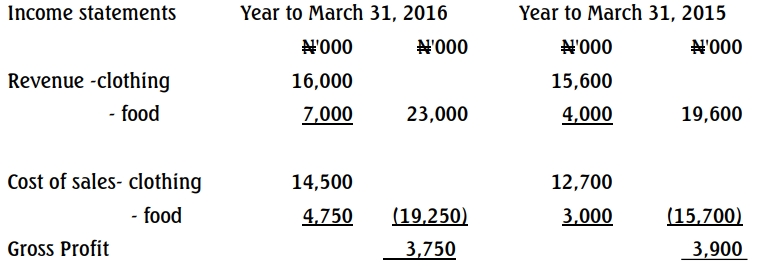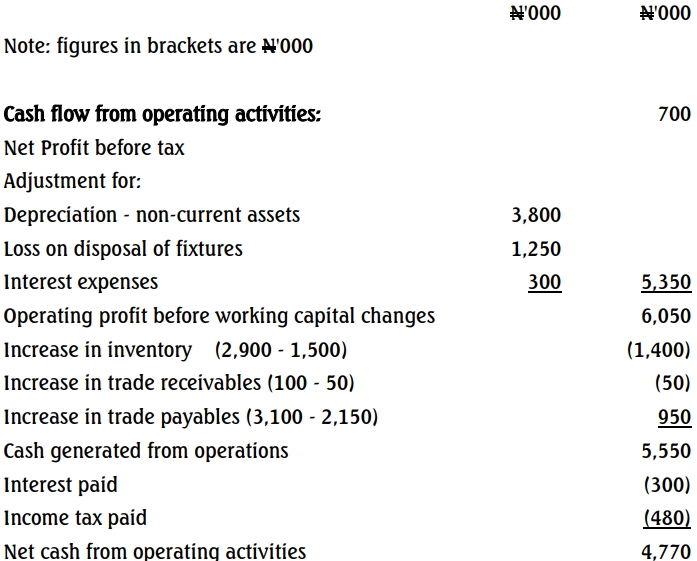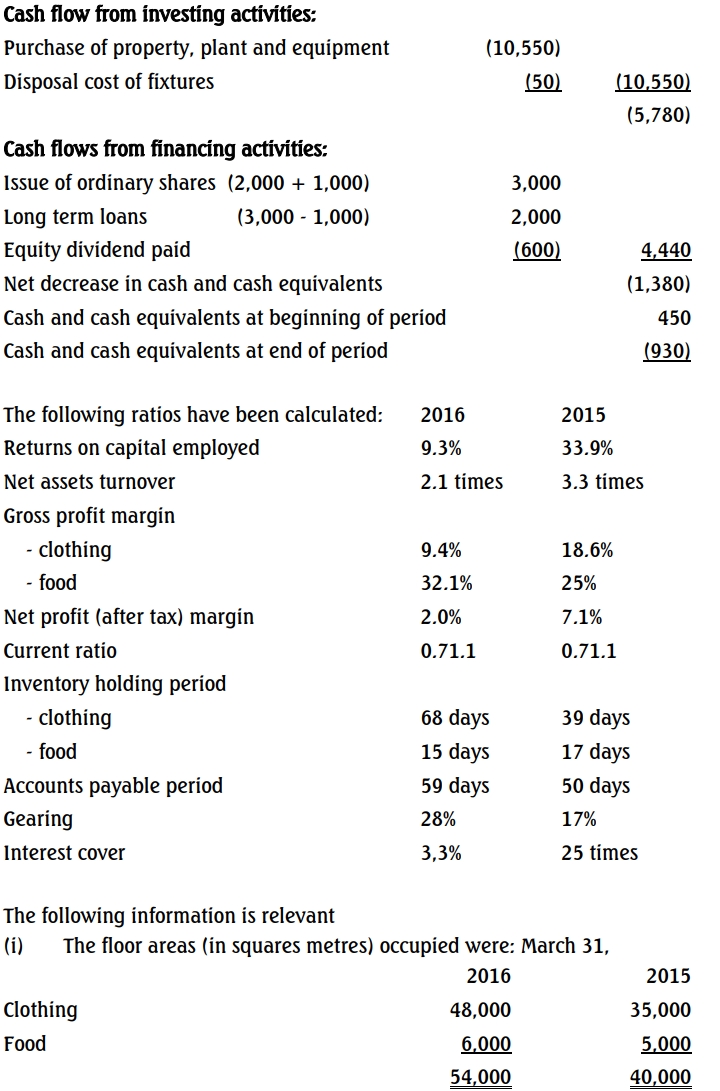Limelight, a public limited company, is a major player in commodity brokerage and supplies. The following transactions relate to the year ended December 31, 2014.
Profit before taxation for the year was ₦487.5m. Taxable profit for the same period was ₦131.25m.
The balances of non-current assets of the company, at December 31, 2014:
| N’000 |
Amount |
| Accounting carrying amount |
937,500 |
| Tax written down value |
637,500 |
The balances above do not include a freehold building purchased in February 2014 for ₦750m. This building was revalued to ₦985m on December 31, 2014.
Accrued rental income on investment property at December 31, 2014, amounted to ₦9.75m. This income was credited to the statement of profit or loss as at year-end but was not received until three months after. Rental income is taxed by the Federal Inland Revenue Service on an actual basis when it is received.
No other temporary differences exist at December 31, 2014. Income tax and Withholding taxes on rental income are paid at 30% and 10% respectively, six months after the year.
Required:
a) Discuss the conceptual basis for the recognition of deferred taxation by Limelight Plc using the temporary difference approach in accordance with IAS 12, arising from the above transactions.
b (i) Outline how the above transactions should be accounted for using journal entries where appropriate.
b (ii) Calculate the provision for deferred tax after any necessary adjustments to the financial statements at December 31, 2014, and use journal entries.





CR – May 2016 – L3 – Q5 – Integrated Reporting
Discuss the purpose of Management Commentary, why it is not mandatory, and the most relevant elements for Umu Amaeshi Plc to focus on in its management commentary.
Umu Amaeshi Plc is a conglomerate that has diverse businesses cutting across some social and environmental sensitive sectors listed on the Nigeria Stock Exchange. In compliance with financial reporting regulatory directives of Nigeria, it has adopted IFRS in preparing its financial statements. The board is aware that this step will enhance the transparency of its reporting and assist in attracting foreign institutional investors who may be desirous of investing in Nigeria. However, in one of the company’s board meetings, the CFO briefed members that given the social and environmental sensitive nature of its operation, the adoption of IFRS may not be good enough to bring that transparency relating to its policies and practices relating to social and environmental disclosures. He makes reference to Para 14 of IAS 1 – Presentation of Financial Statements, which clearly stated that:
“Many entities also present, outside the financial statements, reports and statements such as environmental reports and value-added statements, particularly in industries in which environmental factors are significant and when employees are regarded as an important user group. Reports and statements presented outside financial statements are outside the scope of IFRS.”
The board does not want to engage in social and environmental reporting disclosures since many who do engage in what the business community see as marketing and reports filled with rhetoric. The CFO has therefore suggested the use of Management Commentary.
Required:
a) Briefly explain the purpose of Management Commentary and why it was not made a mandatory requirement for all companies by the IASB. (6 Marks)
b) Identify the three most relevant elements of Management Commentary that Umu Amaeshi Plc should focus on in its management commentary and explain how they will assist the company to achieve the above objectives, given that it does not want to engage in social and environmental disclosure. (9 Marks)
Login or create a free account to see answers
Find Related Questions by Tags, levels, etc.